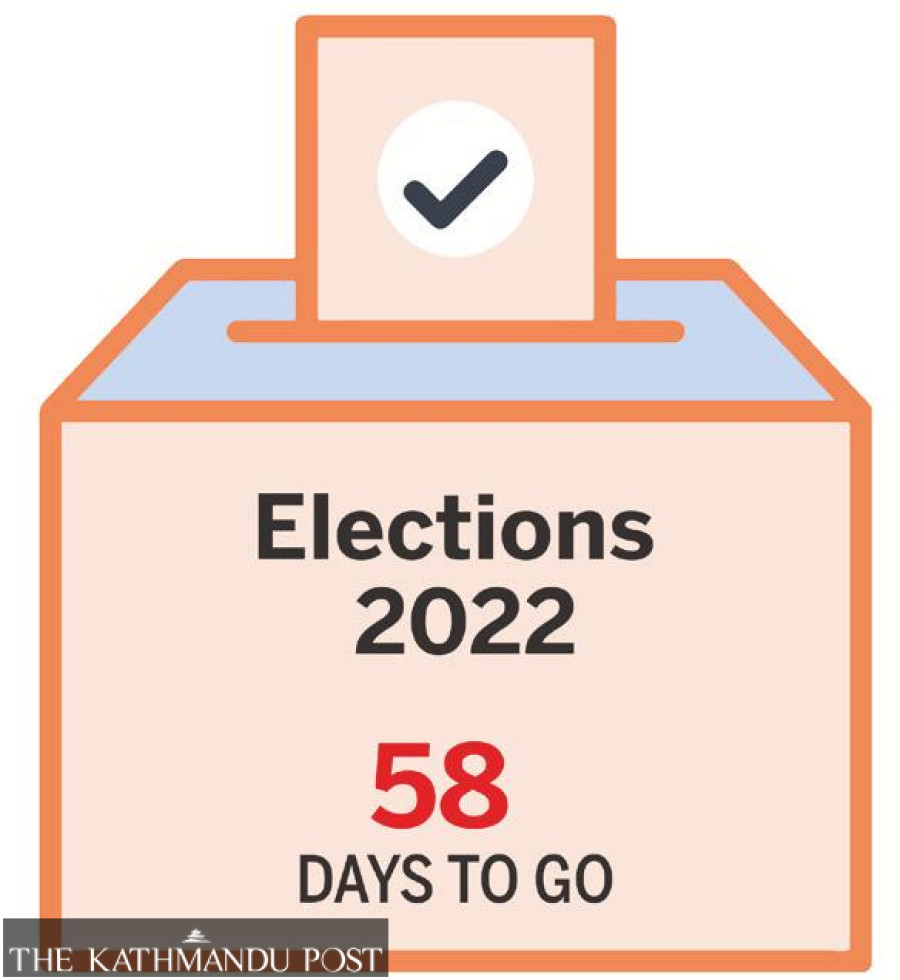Politics
Will escalating tensions hit November elections?
The President is accused of foiling the citizenship bill to muddy the waters, sensing UML’s poor poll prospects.
Tika R Pradhan
With President Bidya Devi Bhandari’s refusal to authenticate the citizenship bill and political forces polarised for and against her decision, many fear the confrontation may lead to a deferral of the November 20 elections.
As student and youth wings of political parties take to the streets, backing and opposing Bhandari’s move, speculations are swirling as to the next steps of the parties. While some said the protests since Wednesday wouldn’t spiral to the extent of foiling the elections, others think small protests could snowball into something much more disruptive.
Some leaders from the four-party coalition in favour of the amendment bill accused the UML of looking for disruption after realising its poor poll prospects. They accused KP Sharma Oli-led party of trying to misuse the President’s Office to delay the polls.
“The President’s move is a kind of coup. If you break a system of governance, ultimately, the polls too will be affected,” said Dev Prasad Gurung, general secretary of the CPN (Maoist Centre), the second party in the Sher Bahadur Deuba-led coalition. “We have decided to protest the President's decision that challenges the very sanctity of a democratic state.”
Gurung, who is also a member of the task force formed to work out a share of seats in the alliance for the upcoming November 20 polls, suspected the President’s decision was part of a strategy to challenge the country’s system of governance. He described it as a continuity of the activities of the Oli-led government that “had tried to create chaos in the country”.
He said the UML’s attempts to reinstate suspended Chief Justice Cholendra Shumsher Rana was also a part of a design to create political turmoil in the country.
President Bhandari’s refusal to authenticate the bill to amend the Citizenship Act-2006 has become a matter of serious concern also because of her alleged duplicity. She had promptly endorsed a similar ordinance to amend the Citizenship Act on May 23 last year at the recommendation of then prime minister Oli, who also chairs the party Bhandari was affiliated to before she was elected President. She refused to authenticate the current bill, which has pretty much the same provisions, even though it was twice endorsed by both houses of the federal parliament.
As many as five writ petitions have already been registered at the Supreme Court against the President.
Deputy General Secretary of Maoist Centre Barshaman Pun, who is close to party chair Pushpa Kamal Dahal, tweeted on Wednesday that the incident is part of the ploy to disturb the polls.
“Not to authenticate the citizenship bill passed by both the Houses, with a view to providing citizenship to the children of Nepali citizens, is not only a violation of the constitution but also an inhuman act of making citizens stateless. Let's be aware and have patience,” Pun tweeted. “This incident is also part of a ploy to disturb the polls.”
Stating that the President was intent on creating a political vacuum in the country, the leaders of the ruling coalition have also decided to exercise restraint so that “the UML’s plan to foil elections won’t succeed”.
On Thursday, the governing partners, after consulting legal experts, decided not to challenge the President’s decision in court. Leaders said these parties are not in a mood for escalation.
However, UML chair Oli’s remarks on Thursday were meaningful.
Oli, while strongly supporting the suspended chief justice, fiercely criticised the government for depriving him of official benefits and confining him to the residence. Oli also defended the President’s move.
Vijay Kumar Poudel, deputy general secretary of the CPN (Unified Socialist), however, said the UML wouldn’t be able to foil the elections.
“I don’t think the President’s move will have any effect on the elections as the ruling coalition has already sensed the intent of the President and the UML,” said Paudel.
“The leaders of the coalition know that any kind of aggression against the President could adversely affect the existing system and they have therefore maintained restraint.”
Paudel said the UML wanted to fish in the troubled waters after creating a constitutional mess, thinking that the President’s role would be pivotal after the term of the House of Representatives expired.
However, UML leaders refuted the accusations, saying it was up to the ruling parties and the government whether or not to postpone the polls.
“It’s the government that takes decisions on elections,” said Prithvi Subba Gurung, deputy general secretary and the head of the UML’s publicity department. “I don’t think the ongoing protests will last long.”
Analysts also said the President’s refusal was guided by her intention to garner some ‘nationalist’ support.
“It’s obvious that the President had made this move with the upcoming polls in mind,” said Shyam Shrestha, a civil society leader who sympathises with the Maoists. “It’s her election tactic underpinned by the fear that the UML could lose this time.”
Shrestha said the move appealed to voters from the nationalist plank but that would not work as people are aware of the president’s intent.
“If she had also opposed the same provisions brought by the previous Oli government in the form of an ordinance, her current refusal to authenticate the bill could have been justified,” Shrestha told the Post.
“But she took a different approach to the same provisions presented by two different governments.”




 13.12°C Kathmandu
13.12°C Kathmandu














